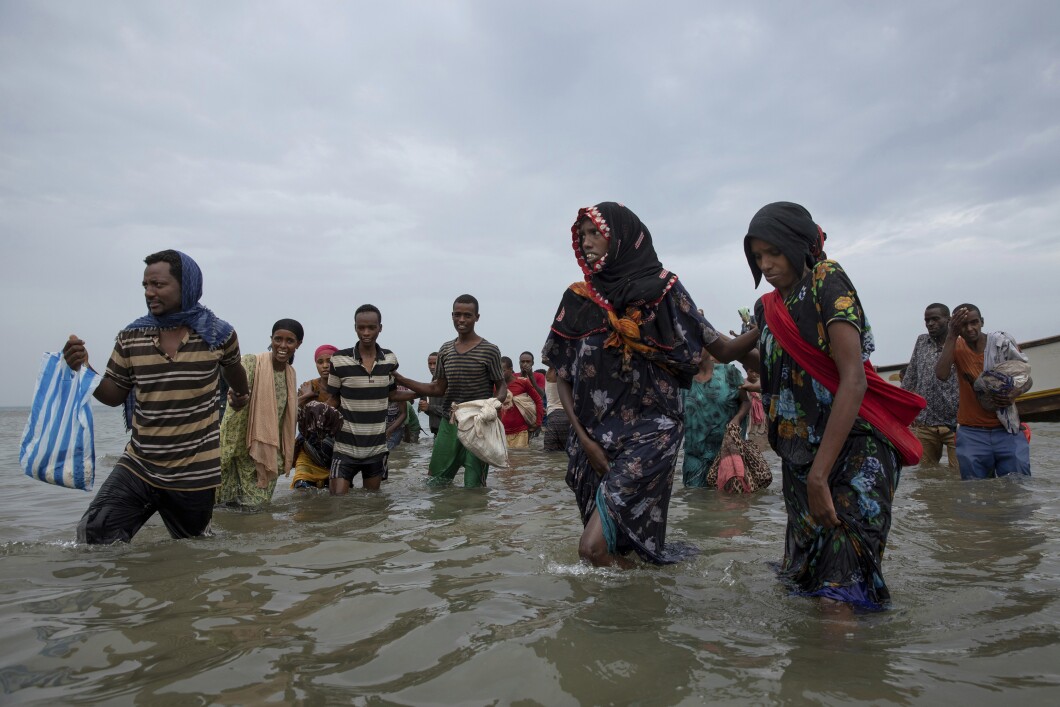
Saudi Arabian border guards killed at least hundreds of Ethiopian immigrants seeking refuge in the kingdom between March 2022 and June 2023, at times shooting people, including women and children, from close range, according to a new report released by Human Rights Watch.
Fleeing conflict in their country, hundreds of thousands of Ethiopians have attempted the perilous journey through Yemen, a country in the midst of a civil war, to reach oil-rich Saudi Arabia, a land that ostensibly promises them more opportunities. But upon reaching their destination, they reportedly found a new kind of brutality.
UP FOR DEBATE: TRUMP, DESANTIS, AND 2024 GOP HOPEFULS’ STANCE ON CRIME
“We were fired on repeatedly. I saw people killed in a way I have never imagined. I saw 30 killed people on the spot,” 14-year-old Hamdiya told the advocacy group. “I pushed myself under a rock and slept there. I could feel people sleeping around me. I realized what I thought were people sleeping around me were actually dead bodies. I woke up and I was alone.”
The journey is not just dangerous because of the conflict ravaging the countries along the Horn of Africa and the Arabian Peninsula. Smugglers reportedly dominate the voyages and commit atrocities to take advantage of the immigrants desperate to create a new life.
The BBC has also reported on the extremely violent and dangerous journey for immigrants traveling to Saudi Arabia. The British news service said immigrants told them “they had limbs severed by gunfire and saw bodies left on the trails” and were shot at while attempting to cross the border into the kingdom.

Human Rights Watch has accused Saudi Arabia of killing Ethiopian immigrants before, but the new report, titled “They Fired on Us Like Rain,” states, “the killings documented appear to be a deliberate escalation in both the number and manner of targeted killings.”
The report also cites examples of explosive weapons being used against immigrants. With the Yemen Civil War raging for nearly a decade now and seen by many as a proxy war between Iran and Saudi Arabia, violence in the region is especially omnipresent.
Saudi Arabia is an important United States partner, given its control of oil and influence in the Middle East and West Asia, but the country has come under scrutiny for its alleged human rights abuses in the past. The murder of Jamal Khashoggi, a longtime U.S. resident and journalist, purportedly by Saudi Arabian Crown Prince Mohammed bin Salman, prompted many calls for the U.S. to denounce the Saudi leader and cut ties with the kingdom.
But no such decision was made, and the two countries continue to maintain a working relationship. Still, the human rights abuses by the kingdom, as many see it, represent a significant stain on the U.S.’s foreign policy.
CLICK HERE TO READ MORE FROM THE WASHINGTON EXAMINER
The conflict in Ethiopia, involving “ethno-regional militias, the federal government, and the Eritrean military,” is focused in the northernmost region and has been going on since November 2020, according to the Council on Foreign Relations.
More than 200,000 people a year attempt to make the dangerous trek across the sea from the Horn of Africa to Yemen and then on to Saudi Arabia, according to the U.N.’s International Organization for Migration.






